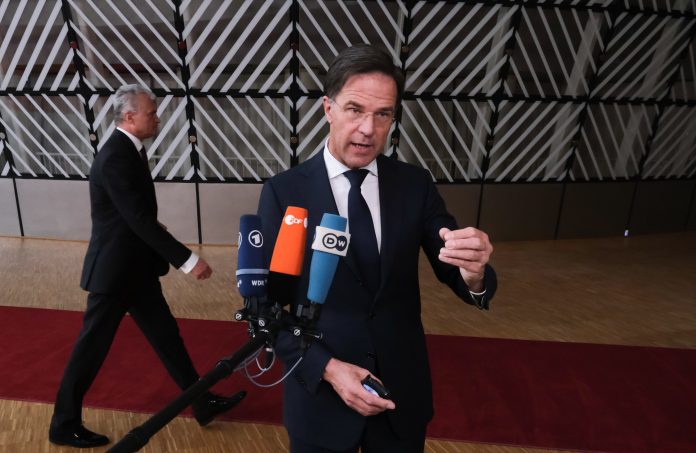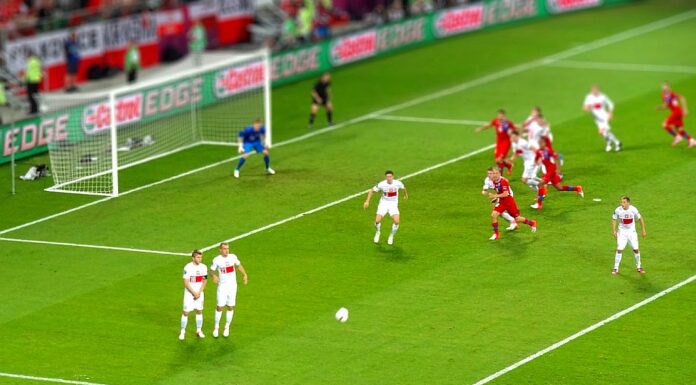
By Dutch MEP Michiel Hoogeveen (ECR, JA21), Vice-Chair of the European Parliament’s Committee on Economic and Monetary Affairs
It’s July 2020. The approval of an ambitious EU Covid recovery fund, amounting to 807 billion euro, is on the agenda of the European summit. The Dutch contribution is a sloppy 5.7 percent, or 46 billion euro.
The money is meant to give the economies badly hit by Covid a helping hand, in the spirit of European ‘solidarity’. Initially, Dutch Finance Minister Wopke Hoekstra and Dutch Prime Minister Mark Rutte objected. After, in exchange for the billions of support, the Netherlands agreed, however demanding that the Southern net recipients carry out economic reforms in exchange.
The Recovery fund is unnecessary
After nights of negotiations, Rutte finally succumbed to the pressure of his European colleagues. However, only under conditions: if it turns out that member states do not reform, they’ll have to pay the money back, and the Dutch are no longer obliged to pay up. The Netherlands is also entitled to a piece of the pie: 5.96 billion euros. Rutte presents this as a Dutch victory. A Pyrrhic victory, as it turns out.
🇳🇱🇪🇺 #Recovery Plan Negotiations Will Be ‘Tough,’ Mark Rutte Tells Corriere – Bloomberg
*Dutch Premier says talks on composition of relief program will take time but a compromise remains possible, according to an ITW to be published in Corriere della Sera’s “7” magazine on Friday pic.twitter.com/i5PMnB6OtX— Christophe Barraud🛢 (@C_Barraud) July 2, 2020
For a start, this so-called “recovery fund” is not necessary. After all, in 2012, the European Stability Mechanism (ESM) was established to provide financial support to weak Member States. However, unlike the Covid Recovery Fund, the ESM imposes very strict conditions on the recipient countries. The latter did not want these conditions. As a result, a new big pot of money has been created, with half of the recovery fund cash being distributed as grants, and the other half in loans.
German Court of Audit warns the EU's "recovery fund", financed with jointly issued EU debt, may lead to "a transfer union through the back-door", a “turning point for the EU”https://t.co/NHYLROHJ8K #NGEU #debtgenerationEU
— Pieter Cleppe (@pietercleppe) March 11, 2021
The European Commission’s questionable interference in Dutch decision making
It gets even crazier, however. As a condition to receive its 5.96 billion euros share, the Netherlands needs to carry out fiscal reforms. The reforms sought by the European Commission not only involve the Netherlands phasing out the fiscal mortgage interest deduction scheme more quickly, the Commission also wants a tax deduction for the self-employed to be scrapped. In other words: while the Netherlands will be paying 46 billion euro to finance this ‘Recovery Fund’ to help weaker EU Member States cope with their budget deficits, it gets only 6 billion from that sum “back”, however with conditions attached, obliging it to hassle Dutch homeowners.
Not only is this a pointless and expensive financial transfer scheme, it also involves questionable interference of the European Commission in Dutch policy making: the Netherlands grants money to countries like Italy and Spain, to help them cope with their backlogs in the area of digital and material infrastructure, and then sees the European Commission imposing drastic conditions for Dutch labour and housing markets. Bizarre.
"How the EU recovery fund amounts to an invisible transfer of power"
New article by @pietercleppe https://t.co/YL9cVV9r5K #NGEU #EURecoveryFund #EU #EuropeanUnion #VonderLeyen— BrusselsReport.EU (@brussels_report) May 3, 2021
Our children and grandchildren will be footing the bill under the pretext of “European solidarity”
It should also go without saying that the huge total of EUR 807 billion which the European Commission is raising on capital markets is of course guaranteed by Member States. How will this be covered? Apparently, options include a European plastic tax, a financial transaction tax and a CO2 tax. The bill to pay back these jointly issued loans is being put off for eight years and has to be paid back in 30 years. By then, the people who came up with this scheme will either have left the planet or will have long since retired. However, our children and grandchildren will need to foot the bill. All under the pretext of ‘European solidarity’.
Then what happens if a Member State is unable or unwilling to pay? Suppose, for example, that Italy or Greece would still have sky-high national debt and would not be able to borrow extra to meet their repayment obligations? Also for this problem, the European Commission has found a solution: the other Member States will simply take over these obligations. The bill may therefore turn out to be much higher for the Netherlands.
This is what national contributions to the EU's EUR 500 billion recovery fund grants would look like if they were based on the ECB capital key (non-Euro members are ECB shareholders too, but don't share profits/losses). pic.twitter.com/1gXRYuCK7s
— Daniel Kral (@DanielKral1) May 27, 2020
"The EU's Recovery Fund will not unleash a new economic bonanza across Europe"https://t.co/B91yrZXfyx
New article, by Europe economist @DanielKral1 #NGEU #RecoveryFund #EuropeanUnion— BrusselsReport.EU (@brussels_report) July 15, 2021
Very soft conditions for an extremely expensive fund
What about the conditions Dutch Prime Minister Rutte claims to have negotiated? Well, these are soft as butter. If an EU member state does not stick to the promised conditions, the maximum term for payments to be delayed is only three months. Also, how likely is it that the European Commission will tackle a country like Italy, let alone France? Any look at the past here should make one skeptical. France has never adhered to the Stability and Growth Pact, for example. Without consequences. In other words, Rutte only obtained the option of a payment delay of maximum three months.
Finally, it should be noted that the fund is not a one-off venture, as claimed by Prime Minister Rutte. Various parties – European Commissioners, central bankers, advisors to French President Macron – have already indicated that the recovery fund is an extremely suitable financial instrument for dealing with future crises. A permanent recovery fund, in other words.
This European solidarity is therefore extremely expensive for the Netherlands. Therefore, my party, JA21, wants the Dutch government to negotiate an opt-out from any future permanent recovery fund. Also, the Netherlands should decline to submit a plan for the Recovery Fund. We should not be accepting conditions in order to get our money back. The Netherlands can always borrow on the capital market itself. Without conditions. It is much better to use these scarce resources for our own infrastructure.
"Is the mafia about to get a massive financial injection from the EU?"
New article, by @pietercleppe:https://t.co/V1Paj54cfo#EUbudget #MFF #NGEU #EURecoveryfund #mafia #Italy #EU— BrusselsReport.EU (@brussels_report) April 12, 2021
Originally published in Dutch by Elsevier Weekblad
Disclaimer: www.BrusselsReport.eu will under no circumstance be held legally responsible or liable for the content of any article appearing on the website, as only the author of an article is legally responsible for that, also in accordance with the terms of use.












